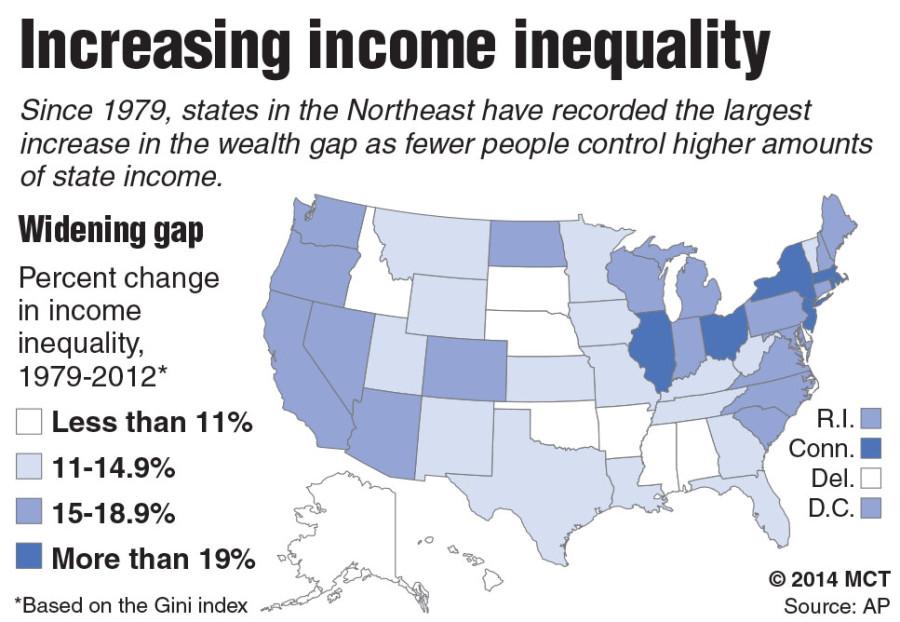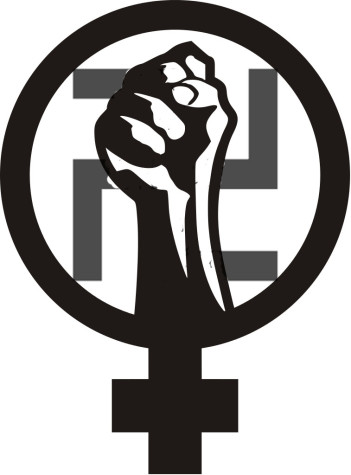A gap that keeps growing
graphic courtesy of Tribune News Service
Shaded map of U.S. showing percent change in income inequality from 1979 to 2012, by state.
The statistics on wealth inequality in the United States are appalling, and they’re not improving. There is no middle class anymore. Americans aren’t asking for anything outlandish, just a shot at a comfortable, happy life. Sadly, this is a growing impossibility due to the structure of our economic system. The system is rigged against the vast majority of the population, and a critical perspective is needed if we are going to have any economic fairness.
Today’s economic climate is the result of 25 years of trickle-down economics, a theory that states that tax breaks to people of the wealthiest brackets and to corporations will help those with lower incomes. However, according to a 2014 study from the Stanford Center on Poverty and Inequality, since the beginning of the trickle-down era, the top economic 20 percent has accumulated wealth, while the bottom 80 percent wages have dropped.
After WWII, for every $1 the federal government received in tax revenue from individuals it received $1.50 from corporations. Today, for every $1 the federal government receives in tax revenue from individuals it receives $0.25 from corporations. Local governments tax physical property like houses and cars, which everyday Americans are likely to have or aspire to have. They do not tax another form of property: stocks, bonds and cash—which wealthy people are far more likely to have. This economic burden must be shifted to wealthier Americans and to corporations by raising their respective income tax rates. The property tax system must be reformed to tax property that wealthier Americans have.
Additionally, American workers should push for the corporations they work for to be converted from top-down enterprises into worker cooperatives. A worker cooperative is a corporation in which the workers run large parts of the company and have real influence in company decision making. These companies run democratically and have regulations to keep the executives in check. The companies have much greater employee happiness and satisfaction, and in the end, turn out a better product.
Labor unions must also be stronger than they are today. Workers must be able to engage in effective collective bargaining to keep things fair.
Finally, shareholder laws need to be reformed. Currently, most corporations are governed by a “one share, one vote” principle when it comes to decision making. This should be changed to “one shareholder, one vote” so that everybody with a stake in the operation of the company is heard.
We will never be able to create fairness for everybody with the top-down enterprises we currently have. When we adopt the attitude of “workers first, profit second,” then we will see a nation of prosperous individuals.







